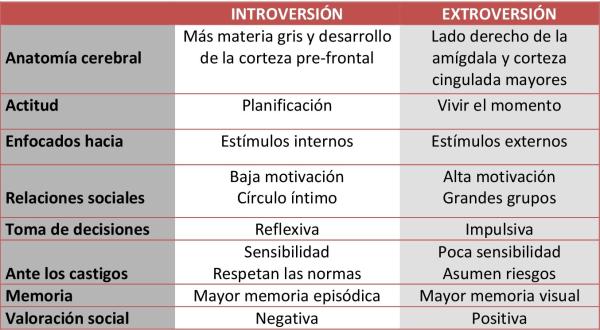
Human beings are by nature a social being and that is why loneliness is often seen as something negative. However, there are people who enjoy their solitude and prefer to choose to spend their free time alone at certain times; although we can also meet people who suffer because of their loneliness and want to avoid that feeling at all costs.
The types of lonely people that we can find are the following: “conformist lonely people”, “conscious and proactive lonely people”, “combatant or escapist lonely people” and, finally, “suffering lonely people or martyrs”.
In this article Let’s see what each of the types of lonely people consists of both in terms of their distinctive characteristics and in terms of their common aspects.
Characteristics of lonely people
It is important to highlight before looking at the types of lonely people, what are the most common characteristics of those lonely people who enjoy spending time with themselves.
Although social relationships are very important for people and establishing emotional ties with others is one of the fundamental pillars for good health, It is also important to know how to be good with ourselves so to have healthy interpersonal relationships it is essential to have developed the knowledge of being healthy when someone is alone.
We could say that in this area the ideal would be to find a certain balance between knowing how to enjoy and take advantage of moments alone and, in turn, developing healthy and lasting interpersonal relationships.
Below we will list some characteristics of those people who enjoy being alone and prefer to be alone on certain occasions although they also do it when they are in the company of other people:
Now that we have seen some of the most common characteristics of those people who are able to take advantage of their time alone to learn, grow and enjoy, we are going to explain what the different types of lonely people are and, as we can see, there are many people who suffer because of their loneliness, having serious difficulties in taking advantage of moments alone to do things that enrich them

The different types of lonely people
If we ask on the street about loneliness, it is likely that most people will tell us that they prefer to be in company than alone, since this concept has a rather negative connotation; However, like many other things in life, being alone is not always a negative thing because when a person learns to enjoy their moments of solitude, seeing them optimistically and taking advantage of their time, they can achieve things that perhaps they would not achieve. being continually surrounded by people (e.g., reading a book that enriches you).
As we already mentioned before, there is no doubt that everything in excess is bad and, therefore, Being completely alone for a long time can be very harmful but spending certain moments in solitude and knowing how to enjoy them can be very enriching and also healthy, since a good indicator of health is the fact of being good with oneself.
However, not all the circumstances that have led a person to be lonely are the same nor do all people from the same firm face it and, therefore, we are going to comment below on the different types of lonely people that we can encounter. .
1. Conformist lonely people
The first of the types of lonely people in this classification is that of the “conformist loners” who are made up of those people who They find themselves alone and settle for that situation even though it is not pleasant for them to be that way
In this category we can find people who, although they consider that they will enjoy things and life in general more if they are accompanied by other people and who also do not enjoy loneliness, they do not do anything to change the situation that is bothering them and causing them. some discomfort. In these cases it usually happens that these people have certain difficulties when establishing new interpersonal relationships of any kind (friendship or romantic relationships).
Conformist lonely people They tend to be passive when it comes to seeking interactions with other people in order to maintain healthy and lasting interpersonal relationships so they usually find themselves passively waiting for others to take the first step to interact with them, so this could be the main cause of their loneliness, since others could interpret their passivity as a refusal to establish social contact with others.
2. Conscious and proactive lonely people
“Conscious loners” is the second of the types of lonely people in the present classification and refers to those people who are aware of their loneliness and do not worry about it in the sense that they accept the circumstances as they are without and without. They seek to deceive themselves, so that They do not spend their time longing for the company of other people but instead try to stay busy doing tasks that they like and make them grow at various levels, thus investing their time in themselves (e.g., playing sports, reading a book that they like and teaches them interesting things, etc.).
The loneliness of consciously lonely people could have been caused by various reasons such as certain life circumstances or they could simply be alone by choice. In any case, these people try to see the positive side of their situation and try to take advantage of it, spending that time on things that make them grow and even enjoy their own company.
The conscious loners They also have no difficulty relating to other people and they may even have healthy relationships with friends and family that they really enjoy when they are in their company; However, they are not worried about being alone and also at certain times they prefer to be alone and isolate themselves.
3. Lonely combative or escapist people
The third of the types of lonely people in this classification is that of the “combatant loners”, which refers to those people who They don’t want to accept their loneliness so they try to fight to eradicate it and to do so they try to have a very busy life and a very tight social life that can leave them exhausted.
All of these actions may even imply that solitary combatants lead a lifestyle and a series of behaviors that go against what they really feel; That is, they do things that don’t really come out of them in order to integrate socially with other people (e.g., going out to parties with other people even if they don’t feel like it, practicing a sport that doesn’t attract their attention in order to to integrate socially into a group of people who practice it, etc.).
Therefore, in this case we can find people who They do everything possible not to spend moments of loneliness and, although they tend to be busy all day and surrounded by other people, in reality they feel deeply alone because in many cases they are not doing activities that they really like, but rather they only do them to be surrounded by other people. .
They avoid loneliness at all costs because feeling it generates quite a bit of fear and, instead of trying to find activities that allow them to enjoy their own company and face those moments alone, they prefer to choose to avoid being alone, no matter what, because they have the belief that they could only feel good if they were accompanied.
- Related article: “Social phobia: what is it and how to overcome it?”
4. Lonely suffering or martyred people
The “suffering loners” are the fourth of the types of lonely people in the present classification. Those people They feel a deep state of discomfort when they are alone, which is why they continually complain about their situation and, therefore, feel unhappy
These people, when they talk to someone about themselves (e.g., to a family member or to a psychologist during therapy), constantly express their suffering and also talk about how miserable they feel and, that constant negativity when it comes to expressing and feeling themselves most of the time is what they transmit to others, so it could cause some people to end up distancing themselves even further from it, which would cause their feeling of loneliness to increase even more.
It is quite common for lonely, suffering people to tell others how bad they feel and the misfortunes they are going through in order to seek their sympathy; However, that negativity that they transmit most of the time and their constant need to complain could actually cause others to not enjoy your company and therefore they can get away from them.








